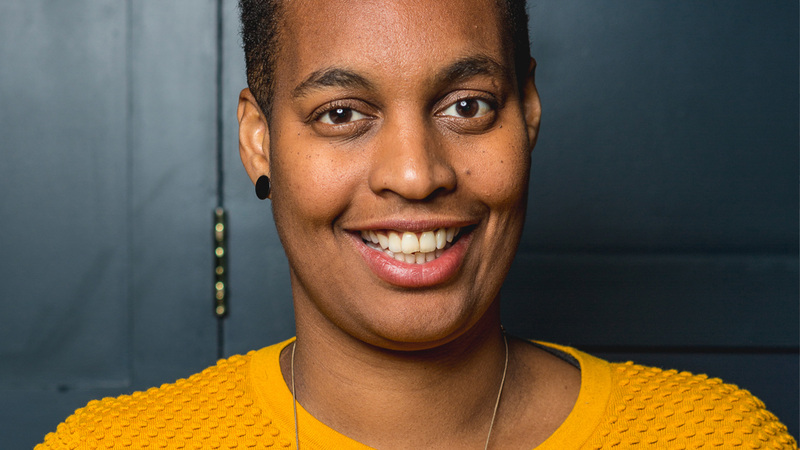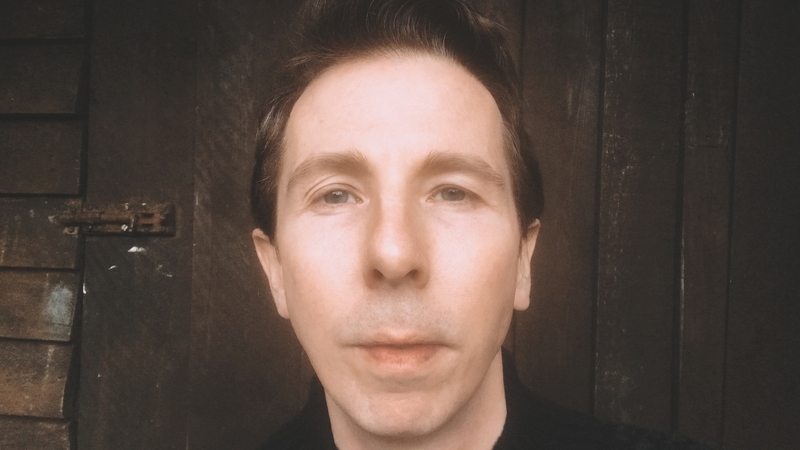You are viewing your 1 free article this month. Login to read more articles.
Yinka, where is your editor? Part 4
Debut author of Yinka, Where is Your Huzband, Lizzie Damilola Blackburn, and her editor Katy Loftus at Penguin, dish the dirt on the reality behind the dream of being published. Read the previous part here.
THE AUTHOR: LIZZIE DAMILOLA BLACKBURN
From the running man to Carlton's dance in "The Fresh Prince", I did every move under the sun after I sent my revised manuscript to my editors and agent at the end of January. I was ecstatic. Roughly six weeks and God knows how many hours spent indoors editing, and finally, I had finished. Well, at least for now. As I await my editors’ feedback, I thought it would be helpful to share a few tips from my experience. Hopefully, it will inspire writers that editing can be enjoyable, even during lockdown.
1. Set the mood
You miss your family and friends. You’re getting cabin fever. I get it. Writing/editing during lockdown can feel like a chore. When this feeling kicked in, I knew I needed to create an ideal writing environment – one far away from my bed because I was having one too many siestas. And so, just like planning a romantic night in, I put things in place to set the right mood. I dimmed the lights. I had a crackling fireplace (not a real one, but the ones you get on a loop on YouTube and set up on your TV. Highly recommend). I prepped my dining chair with a cushion. Oh, and I also had a range of healthy snacks on standby (nuts, fruits; do crackers count?), my beloved hot water bottle on my lap, and - I kid you not - my jasmine diffuser a short waft away. Now, all of this might sound excessive (fine, I hold my hands up; I can be quite particular), but it really did help me to get into the mood for writing! Many studies have shown that one’s working environment does have an influence on productivity, so, if you’re struggling to write, I highly recommend switching things up. Maybe add a house plant to your desk, try sitting on a gym ball, or if you need to stretch your legs, hey, maybe turn your ironing board into a standing desk. Make your writing environment one that is both comfortable and appealing to be in.
2. Don’t be too hard on yourself
You’ve probably heard this time and time again: set realistic goals. In my case, I set myself a target to edit one chapter per day, which I didn’t always meet. Initially, I would beat myself up: Lizzie, there are 24 hours in a day and you couldn’t manage to edit ONE chapter?! But then, after a while, I was like... it is what it is. I’ve learnt that with editing, it’s normal to have good and bad days and to accept that it’s part and parcel of the process. I also learnt that I shouldn’t judge my productivity on how many pages I’d managed to edit or how far I got into writing a new chapter, because spending time planning how I was going to develop a particular scene or character was just as productive. (You see, when you edit one chapter, it can sometimes have a ripple effect on the subsequent ones, and if you haven’t taken the time out to plan how you’re going to streamline the changes, you might find yourself wanting to rip your hair out later on.) There were days when I would do more planning than editing, and I had to remind myself that even though my word count might disagree, I had actually used my time well. So, whatever progress you make, be kind to yourself. You’ve done something. Take comfort that you’re moving forward, regardless of the pace.
3. Find a way to recharge
Now that we’re confined to our homes, every day can seem the same, and this feeling of ‘sameness’ can seep into the way we view our writing. Urgh, you again, I would sometimes think after I opened up my manuscript. Many times, my husband would walk by and say, ‘Why you kissing your teeth for?’
Don’t get me wrong, I love my story. I love Yinka, her family and friends, and the incredible, life-defining journey that she goes on. But sometimes, it’s hard to muster enthusiasm for something that you’ve been working on for a long time (in my case, five plus years.) And so, whenever I felt urgh, I knew it was time to take a step back, because negative energy can equate to lacklustre writing. During this time, I caught up with friends. I binged on "Girlfriends". But most importantly, I relished the positive feeling that I received from these activities. And believe me, the next time I opened up my manuscript, I felt more than ready to kick arse.
So, that’s all from me in this column! I’m currently having some time off before I start book two. Eek! (More on that in a later column.) Oh, and that’s another thing to add to the list. Make sure you have a post-editing break where you give yourself permission to do absolutely nothing - because you deserve it.
THE EDITOR: KATY LOFTUS
Reading Lizzie’s amazing, inspirational piece for this month’s blog I felt like there was nothing I could really add. Editors definitely have it easier in so many ways – we get to be the ones to give, rather than take, feedback. We have other books in the works, which allows you not to place all of your hopes and dreams in one basket. So I asked Lizzie what I should write about and she said: "Correct me if I'm wrong, but I feel like as an editor, you have to give it 100% all the time? How do you do that?"
So here are my tips for editors; but if you’re an author and want an inside track on what your editor is thinking, it’s for you too!
1. Wine
I’m really not sure if I should say this, but this column is meant to be all about honesty, so what the hell: I find a glass of wine a great aid for the first read of a manuscript. There’s something about the slight loosening that allows you to let go of the detail and see a book in its entirety. Probably not advisable for first thing in the morning. Or before an important meeting. And I am sure that a good run would achieve the same thing. Maybe.
2. Rest
I am going to borrow one of Lizzie’s tips here: find a way to recharge. As an editor you are nothing without fresh eyes. I always remember an amazing NHS therapist I had telling me that ‘a workwoman has to have a break to sharpen her tools’. I was falling into the trap of working longer and harder, trying to give everything to my authors and also to push my career forward, and probably also to stifle the lack of self-esteem at the bottom of all of that. But the problem is, the longer and harder you work, the less able you become. You stop seeing the text clearly, stifle creativity, and put a lid on the hope you need to see your way to the end of an edit. Now I try to have the ‘difficult conversations’ with authors or colleagues – ‘it might be a month before I can come back to you’ – as well as taking every weekend off, and planning my weeks meticulously so I can do that. Whatever helps you refresh, do it. You owe it to your authors to give your best edit. And don’t listen to the little voice telling you ‘If I only I work a couple hours later tonight perhaps I’ll feel in control.’ That voice is a liar. The truth is how you feel after seven hours sleep or a walk in the park.
3. Read books you love
In the same way that I once fell into the overworking trap, I also fell into the only-reading-work-books trap due to the pressures of edits and staying on top of what the competition were doing. I think there was a point where I hadn’t read a non-work-related book for about a year. My mind was bleeding dry. Then, one magical afternoon when I was ill, I found a dusty book on my flatmate’s shelves: Audrey Niffenegger’s Her Fearful Symmetry. I read it all that day in an exhilarated rush that filled me to the brim. I still remember the moment I finished it, when I sat there and thought ‘this is why I do this job’. So read the books you love, not in an analytical way, but as a fan. Do it often, suck them up like your morning coffee (preferably with biscuits.)
Good luck with your writing and editing, lovely readers, and we’ll see you next month, when we will be sending Lizzie’s manuscript off to copyedit, and we may even have a cover!















